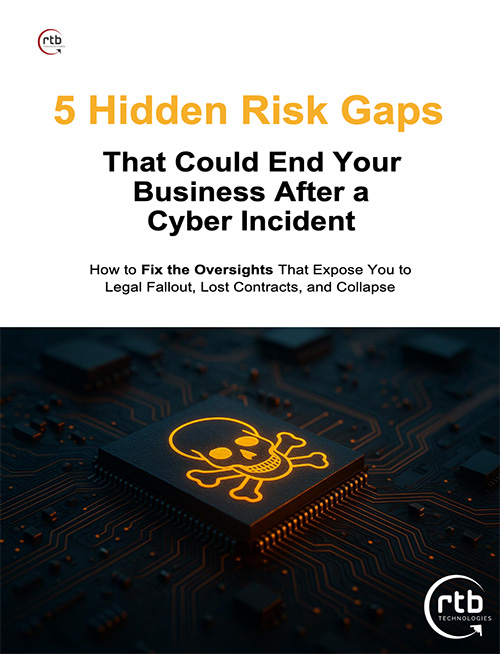
There’s a lot of excitement about artificial intelligence right now—and for good reason. Tools like ChatGPT, Google Gemini and Microsoft Copilot are transforming how mid-market organizations communicate, create content, and streamline operations. But powerful tools bring powerful risks: when employees paste confidential data into public AI services, they may be exposing your business to cyber liability, compliance violations, and reputational damage.
The Hidden Danger of Public AI Tools
It’s not AI that’s the problem—it’s how it’s used. When team members copy client financials, proprietary code, or protected health information into free AI chatbots, that data can be stored, analyzed, and even repurposed to train future models. Imagine confidential reports leaking into the public domain—unnoticed until it’s too late.
In 2023, Samsung engineers accidentally revealed internal source code in ChatGPT, forcing a company-wide ban on public AI tools according to Tom’s Hardware. Now picture that same slip-up in your offices—only the fallout hits your balance sheet and brand reputation.
A New Frontier for Hackers: Prompt Injection
Attackers have moved beyond simple phishing. Now they’re hiding malicious instructions inside emails, PDFs, or meeting transcripts. When an AI service processes that content, it can be tricked into revealing sensitive data or taking harmful actions—without anyone realizing the tool has been manipulated.
Why Mid-Market Businesses Are Especially at Risk
- Unmanaged Adoption: Employees grab the latest AI app to solve urgent problems—often on their own devices.
- False Comfort: Many assume AI chatbots are as benign as search engines, not realizing pasted data could be retained indefinitely.
- Lack of Guardrails: Few organizations have formal AI usage policies or training programs in place.
Four Steps to Regain Control and Protect Your Data
- Create a Formal AI Policy
Define approved AI services, restrict sharing of sensitive information, and designate a point of contact for all AI-related questions. - Educate Your Team
Run interactive sessions that show exactly how a single careless prompt can cascade into a costly breach. - Adopt Secure, Enterprise-Grade Platforms
Move to business-focused tools like Microsoft Copilot, which offer strict data-retention policies, encryption, and audit logs. - Monitor and Enforce
Use network-monitoring solutions to detect unauthorized AI traffic, and lock down devices so no unapproved apps can be installed silently.
AI is here to stay—and businesses that master safe usage will gain a competitive edge. Those that ignore the risks, however, are inviting costly cyber liability.



